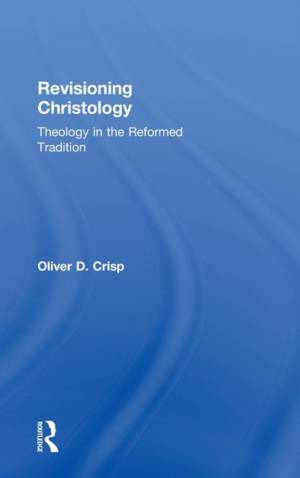
Door een staking bij bpost kan je online bestelling op dit moment iets langer onderweg zijn dan voorzien. Dringend iets nodig? Onze winkels ontvangen jou met open armen!
- Afhalen na 1 uur in een winkel met voorraad
- Gratis thuislevering in België vanaf € 30
- Ruim aanbod met 7 miljoen producten
Door een staking bij bpost kan je online bestelling op dit moment iets langer onderweg zijn dan voorzien. Dringend iets nodig? Onze winkels ontvangen jou met open armen!
- Afhalen na 1 uur in een winkel met voorraad
- Gratis thuislevering in België vanaf € 30
- Ruim aanbod met 7 miljoen producten
Zoeken
€ 202,95
+ 405 punten
Omschrijving
Constructive contemporary theology requires serious engagement with the theologians of the past. This book offers a series of studies in the Christology of key representatives in the Reformed tradition engaging their thought for contemporary dogmatics. Thinkers from each of the five centuries in which Reformed theology has flourished are represented - John Calvin; John Owen; Jonathan Edwards; William Shedd; Donald Baillie; and Kathryn Tanner - each of whom in different ways challenge conventional accounts of Christology. The book is organized thematically, linking historic and contemporary discussions of Christology in theology and philosophy by engaging the thinking of these theologians in a collegial way, using their work as means of promoting constructive systematic theology today. Oliver Crisp presents an important contribution to broadening our understanding of Reformed theology by showing how important theologians have taken views often at odds with 'textbook' accounts of the tradition. Written in an accessible style, this book will appeal to a wide range of readers, including upper-level undergraduates, graduate students and scholars of Christian theology, philosophy and religious studies.
Specificaties
Betrokkenen
- Auteur(s):
- Uitgeverij:
Inhoud
- Aantal bladzijden:
- 168
- Taal:
- Engels
Eigenschappen
- Productcode (EAN):
- 9781409430049
- Verschijningsdatum:
- 28/08/2011
- Uitvoering:
- Hardcover
- Formaat:
- Genaaid
- Afmetingen:
- 156 mm x 234 mm
- Gewicht:
- 412 g

Alleen bij Standaard Boekhandel
+ 405 punten op je klantenkaart van Standaard Boekhandel
Beoordelingen
We publiceren alleen reviews die voldoen aan de voorwaarden voor reviews. Bekijk onze voorwaarden voor reviews.











